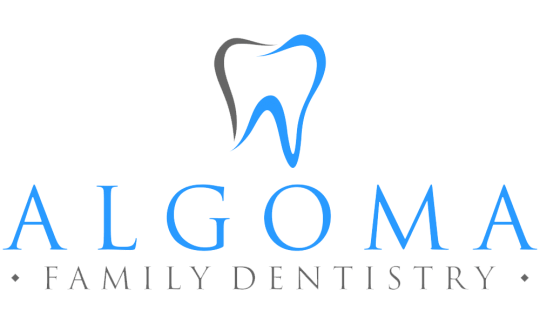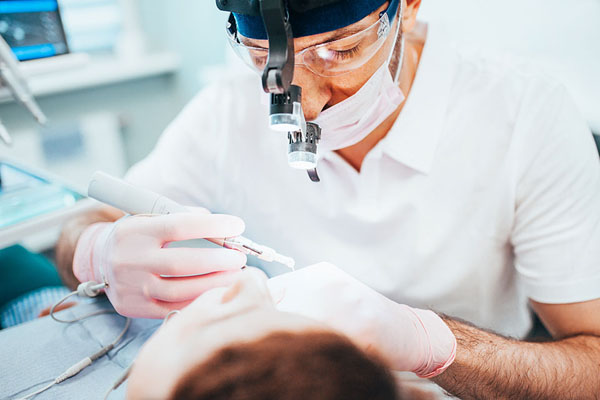Achieve Better Oral Health with Our Dentist Near You
Are persistent bad breath, bleeding gums, or heavy tartar buildup affecting your confidence? You’re not alone in this struggle. Many residents of Algoma, WI, and surrounding areas face these challenges due to years of neglected dental care or complex oral health conditions. Our specialized gross debridement cleaning procedure offers a comprehensive solution—a thorough deep cleaning that removes stubborn plaque and tartar buildup, setting the foundation for optimal gum health and a radiant smile.
Ready to reclaim your dental health? Contact your trusted dentist in Algoma, WI, today at (920) 487-2733 to schedule your consultation. We proudly serve new patients throughout Algoma, Bruemmerville, Forestville, Alaska, and the greater Door County area.

What Are Gross Debridement Cleanings?
A gross debridement cleaning is a specialized dental procedure that goes far beyond typical dental cleaning. This comprehensive treatment targets extensive plaque and tartar buildup that has accumulated over months or years, particularly for patients who haven’t maintained regular dental appointments or those experiencing severe periodontal disease.
Unlike routine cleanings performed by a dental hygienist, gross debridement requires specialized tools and techniques to remove hardened calculus that regular brushing and flossing can’t eliminate. This full mouth debridement procedure serves as the crucial first step before your dentist near you can perform a complete oral health evaluation or recommend additional periodontal therapy.
Key Differences from Regular Dental Cleanings:
- Intensity: More thorough than a typical dental cleaning
- Duration: Usually takes 60-90 minutes vs. 30-45 minutes for routine cleanings
- Tools: Utilizes ultrasonic devices and specialized scaling instruments
- Purpose: Removes excessive buildup to enable proper diagnosis and treatment planning
Who Needs Gross Debridement Cleanings?
Our dental professional at Algoma Family Dentistry recommends gross debridement cleaning for patients experiencing:
Visible Signs of Neglect
- Heavy tartar buildup along the gum line, often appearing yellow or brown
- Persistent bad breath that doesn’t improve with regular oral hygiene
- Bleeding gums during brushing or flossing
- Swollen, red, or tender gums indicate gum disease
High-Risk Patient Groups
- Individuals who haven’t visited a dental office in 2+ years
- Patients with periodontal disease or deep periodontal pockets
- Smokers and tobacco users are prone to accelerated plaque buildup
- Diabetics with compromised immune systems
- Those with sensitive teeth due to exposed root surfaces
When Regular Cleanings Aren’t Enough
Sometimes, even patients who maintain a good oral hygiene routine may need gross debridement due to genetics, medications, or underlying health conditions that affect oral health.
Life-Changing Benefits of Professional Gross Debridement Cleanings
Investing in gross debridement cleaning near you delivers both immediate relief and long-term health advantages:
- Eliminates bad breath caused by bacterial buildup and food particles
- Reduces gum inflammation and bleeding within days
- Removes visible plaque and tartar for a cleaner, brighter smile
- Relieves gum tenderness and discomfort
- Prevents tooth decay and potential tooth loss
- Reduces systemic health risks linked to gum disease, including heart disease and diabetes complications
- Enables effective home care by removing barriers to proper brushing and flossing
- Prepares for advanced treatments like scaling and root planing or periodontal therapy
Confidence and Quality of Life
- Improved social interactions without worrying about bad breath
- Enhanced professional presence with a healthier smile
- Increased motivation to maintain a consistent oral care routine
- Better overall well-being through improved oral health
We offer full-mouth debridement procedures. Contact our dentist in Algoma today by calling (920) 487-2733 for an appointment.
The Complete Gross Debridement Procedure
Understanding the mouth debridement procedure helps patients feel more comfortable and prepared. Here’s your step-by-step guide:
1. Comprehensive Initial Assessment
Dr. Daniel Fama begins with a thorough evaluation of your individual patient’s oral health, including:
- Digital X-rays to identify hidden calculus and bone loss
- Periodontal probing to measure pocket depths
- Visual examination of all teeth and gums
- Discussion of symptoms and oral health history
2. Local Anesthetic Administration
To ensure your comfort during the procedure, we apply a local anesthetic to numb the treatment areas. This makes the gross debridement cleaning procedure virtually painless.
3. Ultrasonic Scaling Technology
Our advanced ultrasonic device uses high-frequency vibrations and water irrigation to:
- Break down large tartar deposits efficiently
- Remove plaque buildup from hard-to-reach areas
- Flush away bacteria and debris from periodontal pockets
- Minimize discomfort compared to manual scaling alone
4. Precise Manual Scaling
For stubborn calculus and areas requiring detailed attention, our dental professional uses specialized hand instruments to:
- Carefully remove remaining plaque and tartar
- Smooth root surfaces below the gum line
- Access areas between teeth and around dental work
- Ensure complete removal of bacterial deposits
5. Professional Polishing and Finishing
After thorough debridement, we polish your teeth to:
- Remove surface stains and discoloration
- Smooth rough areas that attract future buildup
- Apply fluoride treatment to strengthen enamel
- Leave your teeth feeling clean and refreshed
6. Post-Cleaning Evaluation and Planning
With all the buildup removed, Dr. Fama can now:
- Accurately assess your gum health and tooth condition
- Identify any areas needing additional treatment
- Recommend follow-up care or periodontal therapy
- Create a personalized maintenance plan
Essential Post-Debridement Cleaning Care
Proper aftercare is vital for healing and preventing buildup. Follow these expert recommendations for the first 48 hours:
- Use a soft-bristle toothbrush for gentle brushing.
- Avoid irritating foods and rinse with warm salt water.
- Take over-the-counter pain relievers if needed.
For ongoing care, you should:
- Brush twice daily with fluoride toothpaste and floss once daily.
- Stay hydrated and use an antimicrobial mouthwash as advised.
- Limit sugary foods and choose nutrient-rich options, avoiding sticky or hard foods. For the first few days post-treatment, stick to softer foods.
- Schedule dental cleanings every three to six months and attend all recommended periodontal appointments.
- Always communicate any concerns with your dental office.
Whether you’re looking for deep cleanings or other dental services, our dentist in Algoma has you covered. Contact Algoma Family Dentistry today at (920) 487-2733.
Cost and Insurance Coverage for Debridement Cleanings
The cost of gross debridement cleaning typically ranges from $200 to $800, depending on:
- Severity of plaque and tartar buildup
- Number of quadrants requiring treatment
- Geographic location and practice expertise
- Additional services like fluoride treatment or periodontal therapy
Maximizing Your Dental Insurance Coverage
Most dental insurance plans provide coverage for gross debridement under:
- Periodontal treatment benefits (often 50-80% coverage)
- Preventive care allowances in some cases
- Basic restorative coverage, depending on your plan
Our knowledgeable team at Algoma Family Dentistry will verify your insurance benefits before treatment, submit claims directly to your insurance provider, offer flexible payment options for any remaining balance, and provide detailed treatment estimates upfront.
Frequently Asked Questions
The gross debridement cleaning procedure itself isn’t typically painful since we use a local anesthetic to numb the treatment area. You may experience mild sensitivity or tenderness in your gums for 24-48 hours after the procedure, which is completely normal and indicates healing. If you experience severe pain or excessive bleeding, contact our dental office immediately.
The duration varies based on your individual patient’s oral health and the extent of buildup. Generally, the procedure takes 60 to 90 minutes for a full mouth debridement. Patients with severe tartar accumulation may require multiple visits to complete the treatment safely and comfortably.
Gross debridement is typically a one-time procedure for most patients. Once completed, regular dental cleanings every three to six months and good oral hygiene routine maintenance should prevent the need for future debridement cleanings. However, patients with ongoing neglect or certain health conditions may require repeat procedures.

